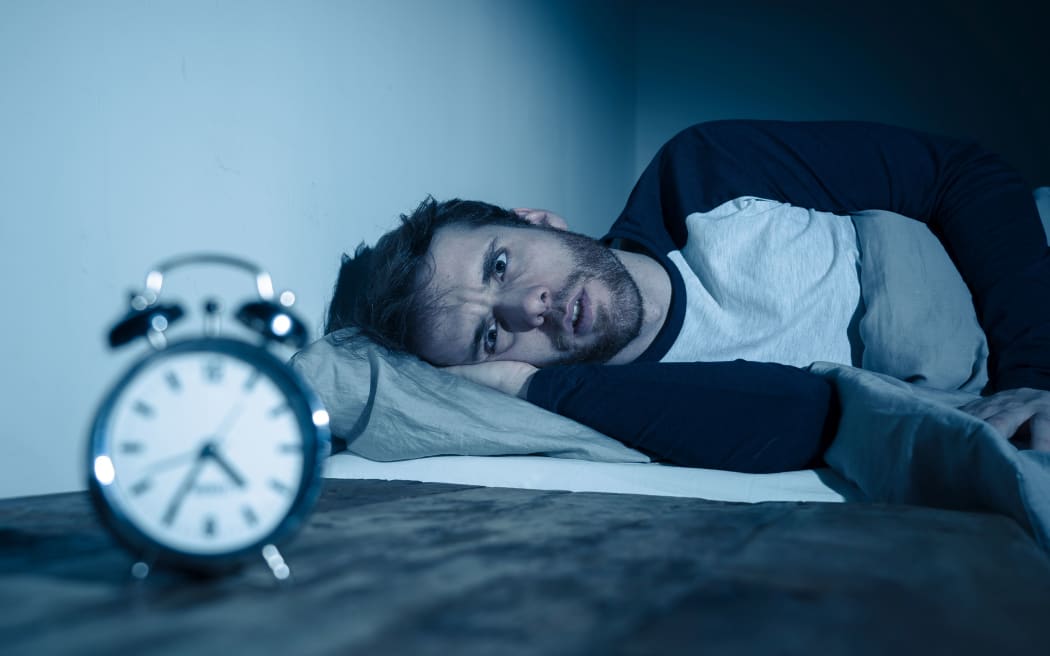The golden rule for working at home is to pretend you are still at the office so that work does not intrude on personal time leading to sleep disruption, a US professor says.

Photo: 123RF
When studies were conducted before Covid-19 on how well people slept when they worked from home, participants said they liked it because they got more sleep. But that is not always true.
In fact, there are downsides to working from home, with less clear boundaries between work time and personal time affecting our sleep patterns.
Dr Jennifer Martin, a professor of medicine at the David Geffen School of Medicine at the University of California, told Sunday Morning that since Covid-19 took hold, one aspect to emerge is "the contamination" of personal time with work time. There are now fewer boundaries between the two when people work from home, she said.
"It seems that during the pandemic in particular there is no end to the work day. I think one of the challenges is that during the pandemic there wasn't always a good plan in place for people to make a conscious transition to working from home.
"They aren't always quite as prepared and organised as people who might have worked from home already and that was always a part of their work routine."
People were suddenly thrust into it and now find themselves doing more work in the evenings, even after a full working day before they then have to try and get to sleep.
It was vital when working at home to pretend you were still at the office. "We are made to have consistent sleep schedules night to night, so having a firm start and end time to your day is really one of the most important ways to have good quality sleep once you get into bed at night."
Dr Martin, who is also a board member of the American Academy of Sleep Medicine, said her own experience made her see that without the need to prepare to leave the house (getting dressed, having breakfast), she could sit down very early and start work.
"Having a physical separation between our work life and our personal life is one of the things that probably helped people in the past to leave stress behind when they came home ... People with very busy high-stress jobs during the day can still sleep fine if they're able to create a separation between the stress and anxieties of the work day and their bedtime."
Steps people could take require some effort, Dr Martin said.
If a work space is next to the bed it is useful to create a physical barrier. It's preferable to have a dedicated work space away from the bedroom.
Electronic devices emit a lot of blue wavelength light that mimics outdoor sunlight, telling the body's circadian clock that it is still time to be awake and preventing the formation of melatonin that helps people feel sleepy.
"Most of us are engaging with things on our devices that are not particularly calming and settling. So reading the number of Covid cases in a certain place in the world or the political issues around Covid - this is not something that settles our mind into relaxation and an easy night of sleep either.
"Most devices now have a feature to filter out the blue light and some people do find that helpful - that or getting glasses that block out blue wavelength light."
Dr Martin said most news outlets aimed to keep the device in a person's hand, and smart social engineers designed products to keep people engaged.
People could set an alarm so that they turned off their television or put away their devices 30 minutes before they went to bed.
Studies showed naps could be both good or bad. In societies such as southern Spain they were an accepted routine that did not harm people. However, in other cultures where naps are not the norm a person's need for a long nap regularly could be a sign of cardiovascular risk.
Early research from Italy and China showed people were spending more time in bed since the pandemic began, however, they were not getting more sleep and it was not better quality sleep.
"Now people have a little more time to spend in bed but they're not always doing it properly... Working from home has some upsides... but there are some downsides and it requires some concerted effort to maintain healthy habits around sleep."

